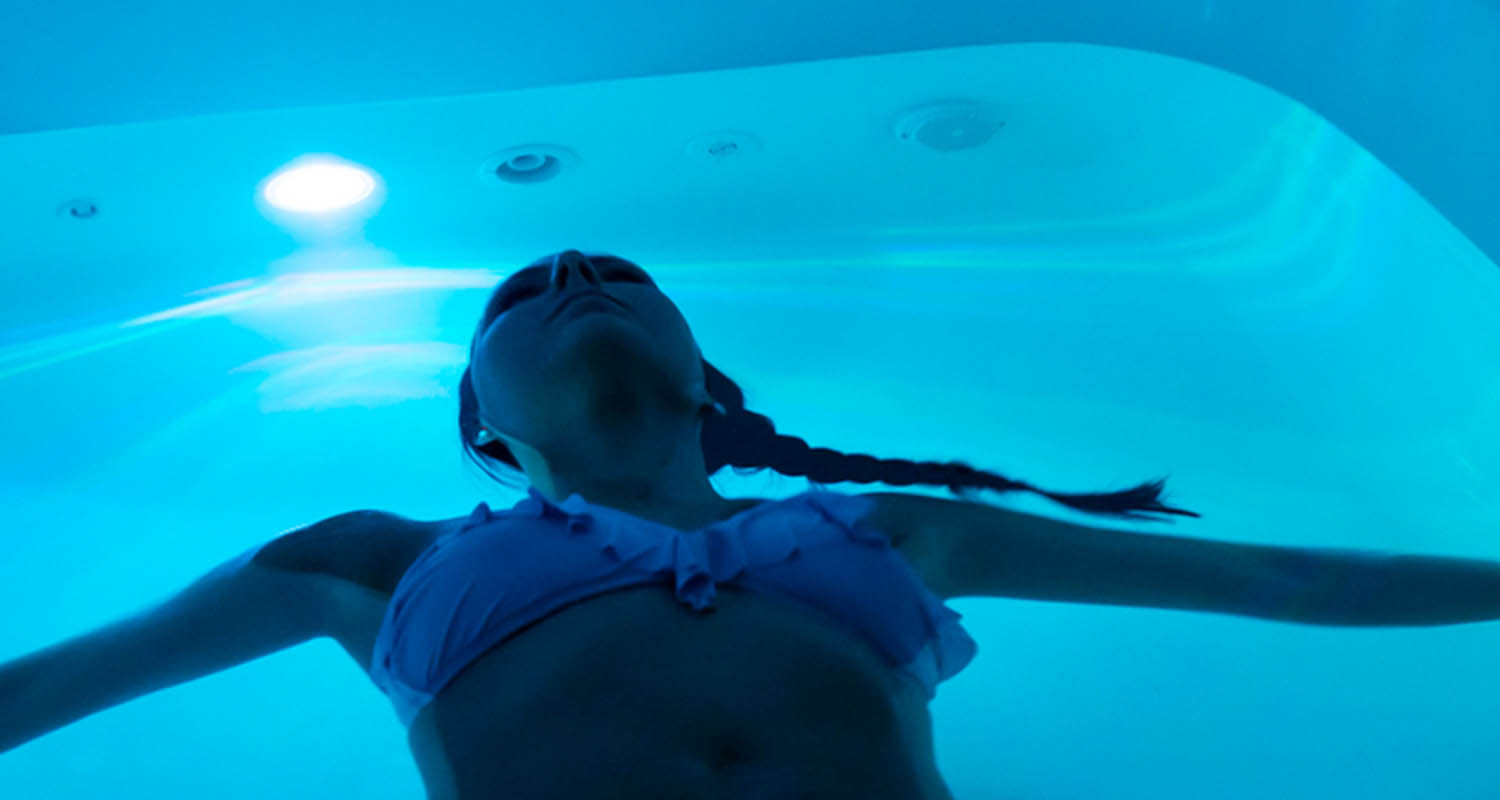
[tldr]
- There are some things that science can’t yet explain, but they’re still worth trying. To be scientific about it, set aside your skepticism and pay attention to your personal experience or your own data.
- Sensory deprivation, psychedelics, and shamanism can all increase your happiness and sense of connection with the world.
- As long as you try biohacks safely and legally, they may be worth your time. At worst, you won’t get any effect — but the results may surprise you.
[/tldr]
The concept of shamanism — an ancient spiritual healing tradition — may seem a little unusual, especially if you’re skeptical about things that science can’t easily explain.
I understand the skepticism. As a former Silicon Valley engineer, I spent my days focused on technology and rational ways of thinking. I also weighed 300 pounds and was sick all the time.
I tried all the standard approaches to higher performance — exercising all the time, eating a low-fat, low-calorie diet, taking antibiotics for chronic sinus infections — and I realized that they just didn’t work.
So I took a rational approach: I consciously suspended my disbelief, and I began testing things outside the box to see what would happen.
It turns out a lot of things work, even though science hasn’t figured them out yet. If you approach something like shamanism thinking, “That doesn’t work because it can’t,” you’re actually being unscientific.
On the other hand, if you can leave behind your bias, open your mind to other points of view, and let experience be your guide, you might discover some pretty cool stuff.
I’ve worked with and interviewed several shamans. One is Shaman Durek, a Norwegian and Ghanese shaman. In a recent Bulletproof Radio [iTunes] podcast episode, he discusses shamanistic healing, which has a surprising number of similarities to Western psychology, but explained and viewed through a different lens.
I encourage you not to shy away from biohacks that seem “out there” to you. Enter them with an open mind and see what happens. At worst, they won’t do anything, but the results might surprise you.
Here’s a look at shamanism, along with two other unusual biohacks.
Shamanism for deep healing
Shamanism is the least scientifically-backed biohack on this list. If you live in the West, it’s probably also the most foreign to you in terms of approach and ideas. In my experience, shamanism can be quite powerful.
Shamans believe that there is a connected, universal energy that underlies all life. Shamans learn how to tap into and share that energy to help improve the world, whether it’s healing trauma, bringing about mental shifts for people, or creating greater openness and connection between human beings.
I’ve also had the pleasure of interviewing Alberto Villoldo, a psychologist and cultural anthropologist who has spent more than 25 years studying shamanic healing practices in South America. His Bulletproof Radio interviews [iTunes] are a fascinating look at shamanism.
After years of extensive neurofeedback and brain hacking, I’m quite sensitive to my mental state. I don’t have data to quantify it, but I can say that working with shamans has produced changes in my cognition that I can feel. I’m reasonably certain these changes are not a placebo effect.
Shamans work with emotion, trauma, limiting beliefs, and mental and energetic blocks — the sorts of things that most Western doctors don’t address. I’m not saying you should trade your doctor for a shaman, though.
Western medicine is tremendously valuable. But the average doctor in the U.S. is more likely to prescribe you a pill than attempt to heal the source of your trauma or mental block.
I encourage you to try shamanism, energy healing, sensory deprivation, psychedelics (legally and with the proper support), or any other biohack that seems out there to you. Enter it with an open mind and see what happens.
At worst, shamanism won’t do anything, but the results might surprise you. Here’s a list of accredited shamans.
Float tanks for theta brain waves and deep meditative states
Float tanks (also called sensory deprivation tanks) block out almost all input to your five senses. They’re single-person tanks that are lightproof, soundproof, heated to 98.6 degrees, and filled with magnesium-rich water that makes you float and leaves you feeling weightless.
The result is that you can’t see, hear, taste, smell, or feel in a float tank. You lose all sense of your body, as well as all sense of time, and you’re left with the sensation of existing in infinite and empty space.
Floating can be psychologically intense, especially if it’s your first time. Your mind will probably protest against the total lack of stimulation by trying to get you to leave the tank. Boredom, uncertainty, racing thoughts, maybe even panic — all of them tend to come up as you float. But if you wait them out, your mind will quiet itself eventually. That’s when floating becomes a powerful biohacking tool.
Float tanks and the brain
Your brain has electrical patterns called brain waves that run across its surface. If you’ve ever had an electroencephalogram (EEG), you’ve had your brain waves measured. Sensory deprivation tanks encourage two rare types of brain waves:[ref url=”https://www.ncbi.nlm.nih.gov/pubmed/11422837″]
- Alpha brain waves. These are the brain waves that come up during meditation. They’re associated with feelings of peace and deep happiness.
- Theta brain waves. Theta waves also increase during meditation.[ref url=”https://www.sciencedirect.com/science/article/abs/pii/S0304394001020948″] They promote a feeling of selflessness, as well as connection and oneness with everyone around you (we’ll talk more about that sensation later in this article).
The combination of alpha and theta waves is common in lifelong Zen monks.[ref url=”https://www.ncbi.nlm.nih.gov/pmc/articles/PMC4302970/”][ref url=”https://www.ncbi.nlm.nih.gov/pubmed/19922249″] Alpha and theta are also the brain waves you learn to increase during 40 Years of Zen. Together, the two of them make you feel calm happiness and a sense that everything is connected.
You can find float tanks in most major cities. Book a 90-minute session or longer, and consider floating twice before you decide whether floating works for you. The first time it can be difficult to settle in because it’s such a foreign experience.
Related: 5 Incredible Health Benefits of Floating
Psychedelics for a shift in perspective
Disclaimer: I’m not suggesting you take psychedelics. That would be illegal in most parts of the world, unless you can get into one of the clinical studies researching how psychedelics improve depression and post-traumatic stress disorder (PTSD).
For more information on those clinical trials and the risks of psychedelics, I suggest listening to the Bulletproof Radio podcast episode with Rick Doblin [iTunes]. He’s a psychedelic researcher with a great deal of insight into how psychedelics work.
Psychedelics (also called hallucinogens or entheogens) include psilocybin mushrooms, LSD, Ayahuasca, and DMT. They alter your perception of the world in colorful and sometimes profound ways. Psychedelics can also offer deep introspection and help you consider your sense of self and reality from a new perspective.
In a Johns Hopkins study, 70% of people who took psilocybin for the first time ranked it as one of the top five most meaningful experiences of their lives, on par with the birth of a child.[ref url=”https://www.ncbi.nlm.nih.gov/pubmed/16826400″]
In another study, a single dose of psilocybin triggered long-term changes in people’s openness score — how willing they are to consider new ideas.[ref url=”https://www.ncbi.nlm.nih.gov/pmc/articles/PMC3537171/”] Increased openness also links to greater creative potential.[ref url=”https://onlinelibrary.wiley.com/doi/abs/10.1111/j.1467-6494.1992.tb00970.x”]
Just two doses of psilocybin, paired with psychotherapy sessions each time, also reversed treatment-resistant depression, and the results were still going strong when researchers followed up 6 months later.[ref url=”https://www.ncbi.nlm.nih.gov/pmc/articles/PMC5813086/”]
Psychedelics can create the same feeling of connection that floating does. It’s the experience of oneness with the world around you, and a sense of perspective that extends beyond yourself. That said, psychedelics can also be very psychologically intense. If you try them, make sure you’re in a place where they’re legal, and learn about set and setting — how to make your trip as safe and pleasant as possible.













